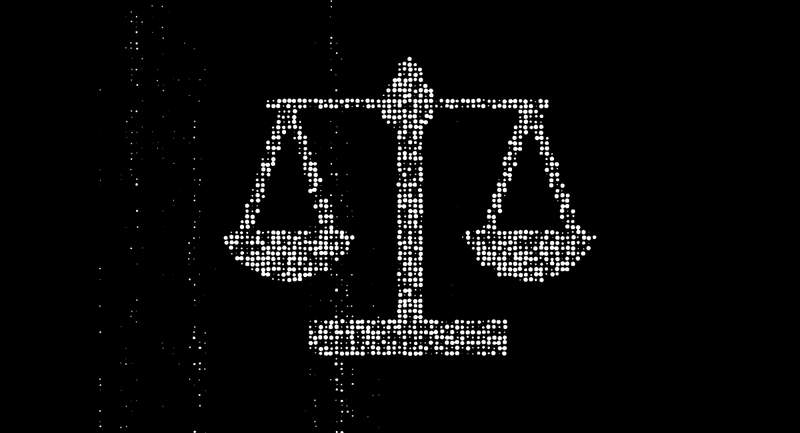How AI is reshaping the legal profession
AI-powered tools may already be giving some lawyers the upper hand in court.
By Harrison Reishman
Artificial intelligence is transforming many fields of work and the legal profession is no exception. Aided by large language models (LLMs) such as ChatGPT and Deepseek, lawyers are now able to draft contracts and analyze vast amounts of information in rapid time. And those same AI tools may even be giving some lawyers the upper hand in the courtroom. Take these evolutions a few steps further and it raises the question of whether “robot lawyers” will be handling our legal affairs at some point in the near future.
The legal profession is no stranger to the use of advanced tools such as computational analysis, which have revealed significant patterns such as the fact that verdicts imposed by judges after a lunch break tend to be more lenient than those imposed before lunch. But those insights only scratch the surface of what AI-powered tools may be able to do.
“When you read the text of an opinion, you can really see the hallmarks of certain judges,” says Luke Yingling, the CEO and founder of Rhetoric. His firm is developing AI-powered legal tools that will mine judicial opinions and other publicly available legal documents to create actionable information about how particular judges or courts tend to rule on various matters. Needless to say, that sort of information would be very useful to any lawyer arguing a case before one of those judges or courts.
Furthermore, says Yingling, the AI-powered tools that Rhetoric is developing can help lawyers to craft arguments that are more closely attuned to the approach and mindset of the specific judge or court that they’re appearing before. “When you match the linguistic styles of your judge more closely, your odds of success in litigation can go up by 20% or more,” Yingling told me. “We started looking at jurisprudence just because it was so measurable, and nobody had really done it before.”
In Yingling’s view, the use of AI in “extracting insights that help you increase new levels of effectiveness” represents “probably the new horizon” in artificial intelligence.
Is the legal profession ready for what this AI-powered revolution might bring about? Julian Nyarko, a professor at Stanford University law school and associate director of the Stanford Institute for Human-Centered AI, says that certain safeguards are already in place within the legal profession. “Existing legal ethics rules have always prohibited lawyers from misleading the court and from misrepresenting the law,” he explains, “which, among other things, requires them to check that their sources support the intended proposition.” In other words, lawyers remain professionally bound to verify the accuracy of the information they’re using, including information brought to light (or hallucinated) by an LLM. On top of that, many state bar associations are now crafting rules to directly address the use of LLMs by their members.
The examples cited above, however, all involve human lawyers using AI-powered tools for assistance. What about the possibility of “robot lawyers” that require no human partner at all?
The company DoNotPay is looking to popularize that very thing. Founded in 2015 by Joshua Browder, DoNotPay began as a legal chatbot designed to help its users fight parking tickets. The company now offers more automated services to its clients, including formal consumer complaints against corporations.
One major obstacle facing DoNotPay is the fact that a person must first pass the bar exam before being legally allowed to practice law. “Our view at DoNotPay,” Browder argued on the Andreessen Horowitz podcast, “was this didn’t apply because in these laws it says a person can’t practice law without passing the bar, and AI is not a person, it’s a technology, and the person is just representing themselves with the help of AI.”
The courts have so far declined to allow anything resembling a chatbot to actually practice law. Stanford’s Nyarko agrees that the idea of allowing robot lawyers is both impractical and premature. ”I don’t think this suggestion should be taken seriously,” he says. “To me, it’s too early to worry about and create policy around ‘robot lawyers’ when we don’t even know what form AI-assisted legal representation might realistically take.”
“There’s the art of practicing law—the art of rhetoric,” says Daniel Scarr, the chief product officer at Rhetoric. “I think the introduction of this technology starts to make it a bit less of an art and more of a science. People are going to start looking more at analytics and data-driven persuasion as opposed to the art of persuasion.”
“At a high level, I think there has always been the notion that rhetoric can be studied scientifically,” concurs Nyarko. “For instance, Aristotle’s work on rhetoric has analyzed argument structure and audience psychology. But I would certainly agree that more data promotes the scientific study of many domains which have historically resisted such study.”
For Nyarko, the biggest surprise so far is just how little disruption that AI has brought to the legal profession. “Some of the technology to assist with routine legal tasks has existed for a while, well before GPT-3, and some law firms have long predicted that they would hire fewer junior associates as a consequence,” he observes. Yet, “so far, that hasn’t really happened, although I agree that it probably will.”
Still, the rise of AI is undeniably giving legal elites new cause to think critically about the future of their profession. “AI obviously has great potential to dramatically increase access to key information for lawyers and non-lawyers alike,” observed Chief Justice John Roberts in his 2023 Year-End Report on the Federal Judiciary. “As 2023 draws to a close with breathless predictions about the future of Artificial Intelligence,” Roberts wrote, “some may wonder whether judges are about to become obsolete. I am sure we are not—but equally confident that technological changes will continue to transform our work.”
We’d love to hear from you! If you have a comment about this article or if you have a tip for a future Freethink story, please email us at tips@freethink.com.






